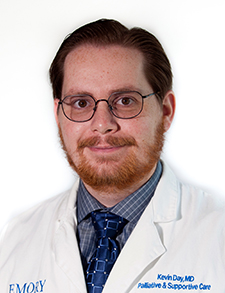Clinical question: Should providers universally not recommend feeding tubes in patients with dementia and poor oral intake?

Dr. Day
Background: The natural progression of advancing dementia involves decreased oral intake, which poses moral and ethical dilemmas for providers and families. Guidelines from professional societies state not to offer tube feeding based on observational studies which showed no improvement in outcome. However, there is continued controversy because there are no randomized controlled trials comparing the benefits and burdens of tube feeding versus careful hand feeding.
Study design: Narrative literature review of relevant articles from 2000-2019.
Synopsis: Burdens: One eight-year prospective study of more than 35,000 patients found no improvement in survival with a percutaneous endoscopic gastrostomy (PEG) tube. Tube feeding was found to be associated with higher rates of aspiration pneumonia as well as increased prevalence of gram-negative bacteria (e.g., Pseudomonas and Klebsiella). An evaluation of the minimum data set found that those with PEG tubes were more than twice as likely to have pressure sores (presumed due to increased neglect by caregivers). Finally costs billed to Medicare were significantly higher in tube-fed patients ($6,994 versus $959). Benefits: One retrospective study showed a reduced incidence of aspiration pneumonia. Another small retrospective study showed improvement in albumin levels, which was positively correlated with survival. A larger retrospective study showed median survival times of 695 days with tube feeding versus 75 days without it. While the review of the literature was exhaustive, the studies were observational and mostly retrospective. The studies showing benefits were smaller and occurred in different regions of the world (Japan) which may not be generalizable to the U.S.
Bottom line: Medical decisions regarding the decision to start tube feeding in patients with dementia should be individually based and clear. Thorough discussions evaluating the burdens and benefits should be addressed with families.
Citation: Ijaopo EO and Ijaopo RO. Tube feeding in individuals with advanced dementia: a review of its burdens and perceived benefits. J Aging Res. 2019;2019:7272067. doi:10.1155/2019/7272067.
Dr. Day is an assistant professor of medicine and assistant professor of palliative medicine at Emory University School of Medicine. He currently works at Grady Memorial Hospital, Atlanta.